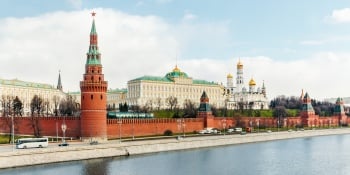Published: 27.03.2020

The 64th Session of the UN Commission on the Status of Women was intended to take place in March and hailed as a breakthrough in regard to the implementation of pro-abortion and pro-gender-ideologies. However, the scope of the event was severely limited due to the coronavirus outbreak. During its course, only a single two-hour-long meeting was held, with the Member State representatives and some organisations operating in New York participating. Although a Political Declaration was adopted at the event, no controversial ideas were included in the final version of the document – contrary to the expectations of radical activists. The need to appreciate women’s housework was emphasized instead.
The Session was aimed to celebrate the 25th anniversary of the introduction of the Platform for Action – the crowning achievement of the Fourth World Conference on Women held in Beijing in 1995. It was during this conference that the radical ideas of the feminist movement, including terminology referring to gender ideology, were introduced to official UN discourse. Ultimately, thanks to the opposition of numerous countries, the most controversial regulations were not included in the document. The arguments presented at the 1994 Cairo conference were reiterated as well. In accordance with them, abortion cannot be considered a family planning method and states are obliged to reduce the number of such procedures. The Session itself was meant to be an inauguration of this year’s events, which were aimed primarily at undermining the consensus of the international community.
The reports from events preceding the Session and documents issued by ideological organisations, which were posted on UNWomen’s official website, contain numerous demands regarding the propagation of the gender ideology, as well as explicit sex education and killing unborn children. These resources devote a lot of attention to counteracting movements that oppose the gender ideology and strive to protect human life – ones they refer to as ‘pushback movements’. Similar statements were included in the draft Political Declaration prepared by UN officials (section 6 of the Preamble).
Due to the coronavirus outbreak, full commission proceedings could not take place. The Session consisted only of a single, two-hour-long meeting. Contrary to the expectations of radical activists, no demands for explicit sex education, unrestricted access to abortion or the propagation of gender ideology were voiced, and the Member State representatives went on to adopt the final text of the Political Declaration regardless. In the end, the demands regarding the fight against the ‘pushback movements’, which were included in the draft, were removed from the final text. Instead, the document emphasized the need to fight for equal rights for women and appreciate the unpaid housework that women often provide. At the end of the meeting, only the UN Secretary-General, Antonio Guterres, expressed regret about the level of access to the so-called ‘reproductive and sexual rights’, which he considers ‘far from universal’, as well and the increasing number of movements that oppose such ideologically-motivated demands.
‘Despite the grandiose announcements preceding it, this year’s one-day-long Session of the Commission on the Status of Women did not become a platform for manifesting the ideological demands of the radical movements which operate as part of the UN. The direct reason for cancelling the main part of the event was the outbreak of the coronavirus, which poses a major threat to all nations around the world. At the same time, the increasingly stronger opposition to dangerous concepts such as ‘reproductive and sexual rights’ and the gender ideology displayed by certain countries, including Brazil, Hungary, the United States, and to some degree, Poland, cannot be underestimated either. It was their voice that had a fundamental impact on the final shape of the Political Declaration adopted during the Commission’s shortened proceedings. Nonetheless, the UN Secretary-General’s statements about the need to promote SRHR not only raise concerns but also illustrate the growing pressure that radical movements exert to have their demands implemented’, said Karolina Pawłowska, Director of the International Law Centre at Ordo Iuris.

24.04.2024
Mysterious links, the Kremlin, Catholic fundamentalism – Polish pro-abortion activist Klementyna Suchanow continues her crusade against her country’s main pro-family, anti-abortion lawyers’ organization, the Ordo Iuris Institute.

· The European Parliament adopted a resolution calling for the inclusion of the so-called right to abortion in the Charter of Fundamental Rights of the European Union.

· The anti-life projects proposed by our ruling coalition are only the beginning of a political process leading to the normalisation of the mass killing of unborn children.
· The French law of 1974, which was only supposed to open the floodgates to prenatal killing for women in distress, in fact established a new legal foundation through which almost a quarter of a million children lose their lives in France every year.